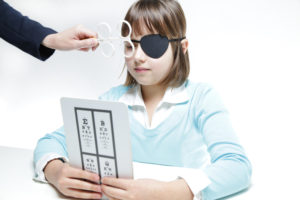Introduction
Welcome to the official website of Dr. Subahtra’s RBS Eye and Health Clinic. We are committed to providing exceptional eye care services, including vision therapy. In this article, we will explore the importance of vision therapy, the benefits it offers, and how it can help individuals of all ages improve their visual skills and overall quality of life.
Understanding Vision Therapy
What is Vision Therapy?
Vision therapy, also known as visual training or vision training, is a specialized program designed to improve and enhance visual skills and abilities. It is a non-invasive and personalized approach that involves a series of exercises and activities aimed at correcting visual deficiencies and optimizing visual performance.
Who Can Benefit from Vision Therapy?
Vision therapy can benefit individuals of all ages, from children to adults. It is particularly helpful for those with:
- Binocular vision problems (issues with eye coordination and teamwork)
- Amblyopia (lazy eye)
- Strabismus (crossed or misaligned eyes)
- Accommodative disorders (difficulties with focusing)
- Eye movement disorders
- Visual perceptual disorders
- Learning-related vision problems
Vision therapy is customized to address specific visual issues and is tailored to meet the unique needs of each individual.
The Benefits of Vision Therapy
Improved Visual Skills
Vision therapy aims to improve various visual skills, including:
- Eye coordination and teaming
- Focusing abilities
- Eye movement control and tracking
- Depth perception
- Visual processing speed
- Visual memory
- Visual attention and concentration
By targeting and enhancing these skills, vision therapy can lead to improved academic performance, enhanced sports performance, and overall visual comfort.
Enhanced Quality of Life
Vision problems can significantly impact daily activities, such as reading, writing, driving, and participating in sports. Vision therapy helps individuals develop efficient and accurate visual skills, enabling them to perform tasks more comfortably and efficiently. By addressing visual challenges, vision therapy can improve overall quality of life and boost self-confidence.
Non-Invasive and Personalized
Vision therapy utilizes non-invasive techniques, relying on exercises, activities, and specialized equipment to improve visual skills. Each therapy program is tailored to the specific needs and goals of the individual, ensuring a personalized and targeted approach to vision improvement.
What to Expect During Vision Therapy
Comprehensive Eye Examination
Before starting vision therapy, a comprehensive eye examination will be conducted to assess your visual abilities and identify any underlying issues or deficiencies. This examination includes various tests to evaluate visual acuity, eye coordination, eye movements, and visual perception.
Customized Therapy Program
Based on the results of the eye examination, a personalized vision therapy program will be created to address your specific visual needs. The program will consist of a series of in-office sessions and prescribed home exercises to be performed regularly.
In-Office Therapy Sessions
During the in-office therapy sessions, a qualified vision therapist will guide you through a variety of activities and exercises. These may include eye-tracking exercises, focusing drills, visual puzzles, and other specialized techniques aimed at improving visual skills.
Home Exercises
To maximize the effectiveness of vision therapy, home exercises will be assigned for you to practice between the in-office sessions. Consistency and regularity in performing these exercises are key to achieving optimal results.
Frequently Asked Questions (FAQs)
FAQ 1: How long does vision therapy take?
The duration of vision therapy varies depending on the individual’s visual needs and progress. It typically ranges from several weeks to several months. The frequency of therapy sessions and home exercises also plays a role in the overall timeline.
FAQ 2: Can vision therapy replace glasses or contact lenses?
Vision therapy does not directly address refractive errors, such as nearsightedness or farsightedness. However, it can improve visual skills and reduce reliance on glasses or contact lenses in certain cases. Your eye care professional will determine the best approach for your specific visual needs.
FAQ 3: Is vision therapy only for children?
No, vision therapy can benefit individuals of all ages. While it is commonly associated with children, adults can also benefit from vision therapy, particularly in cases of binocular vision problems, eye movement disorders, or visual perceptual difficulties.
FAQ 4: Is vision therapy covered by insurance?
Insurance coverage for vision therapy varies depending on the insurance provider and the specific policy. It is recommended to consult with your insurance provider to determine coverage options for vision therapy.
FAQ 5: Are the results of vision therapy permanent?
The improvements gained through vision therapy are typically long-lasting. However, it is essential to maintain good visual hygiene and continue practicing visual skills to sustain the benefits achieved.
FAQ 6: Is vision therapy supported by scientific evidence?
Yes, vision therapy is supported by scientific research and has been shown to be effective in improving visual skills and addressing various visual conditions. Numerous studies have demonstrated its positive impact on visual function.
Conclusion
At Dr. Subahtra’s RBS Eye and Health Clinic, we are dedicated to providing comprehensive eye care services, including vision therapy. Through personalized therapy programs, we aim to enhance visual skills, correct visual deficiencies, and improve overall quality of life. If you or your loved ones are experiencing visual challenges, we encourage you to schedule a comprehensive eye examination to determine if vision therapy is right for you. Let us help you unlock your visual potential and achieve optimal visual wellness.


